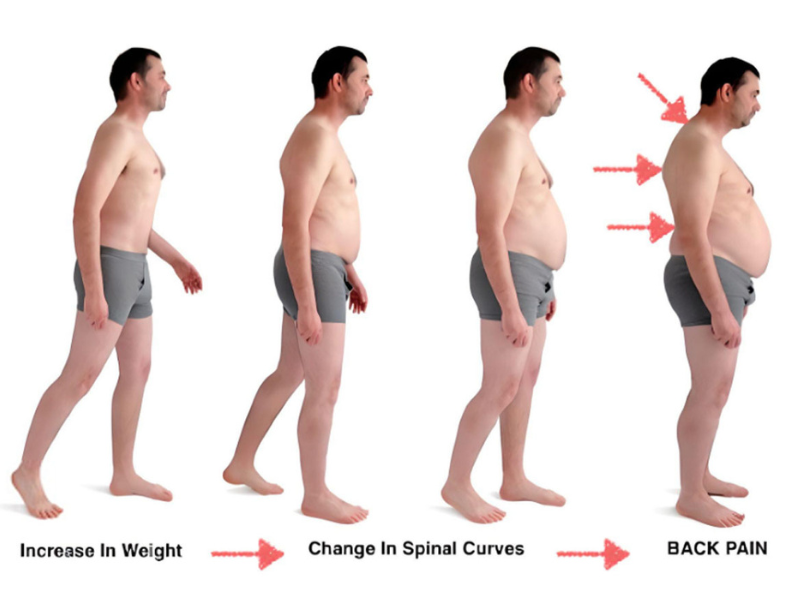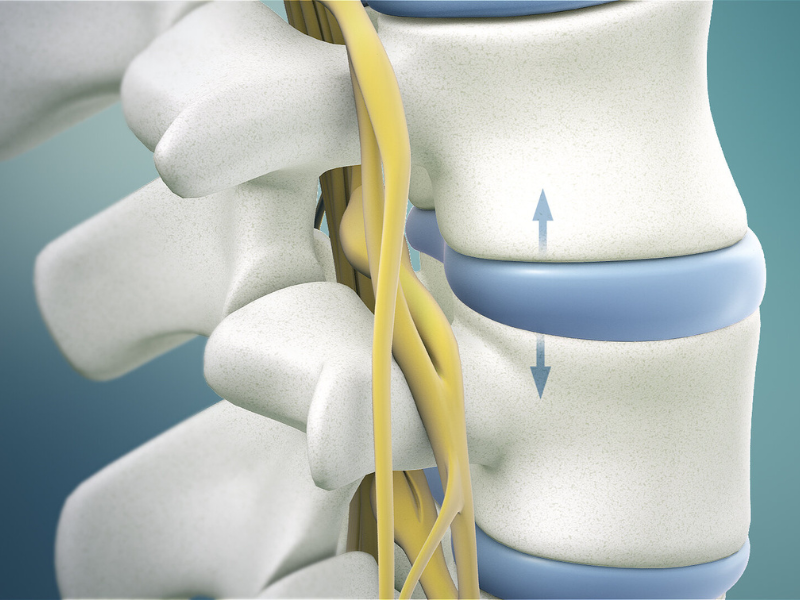
Revolutionizing Spinal Surgery: The Remarkable Benefits of Robotics
August 15, 2023
Enhancing Surgical Precision with Intraoperative Neuromonitoring
October 15, 2023Maintaining a healthy weight is not only crucial for overall well-being but also plays a significant role in preventing and managing back pain. Excess weight can place added strain on the spine, leading to discomfort, inflammation, and increased risk of spinal conditions. In this blog post, we will explore the link between healthy weight and back pain: tips for prevention and relief as well as provide valuable tips for weight management to promote a pain-free back.
Understanding the Impact of Weight on the Spine:
Carrying excess weight, particularly around the midsection, can contribute to several factors that increase the likelihood of experiencing back pain:
- Increased Mechanical Load: Additional weight puts increased stress on the spine and its supporting structures, including the discs, ligaments, and muscles. This can lead to accelerated wear and tear, disc degeneration, and musculoskeletal imbalances.
- Poor Posture: Excessive weight can cause postural changes, such as an anterior pelvic tilt or increased curvature of the lower back (lordosis). These imbalances can strain the spine and lead to chronic pain.
- Inflammation and Joint Stress: Adipose tissue (fat) produces inflammatory substances that can trigger pain and inflammation in the body, including the back. Furthermore, the increased weight can overload the joints, exacerbating conditions like osteoarthritis.
Tips for Maintaining a Healthy Weight to Prevent Back Pain:
- Adopt a Balanced Diet: Focus on consuming a variety of nutrient-dense foods, including fruits, vegetables, whole grains, lean proteins, and healthy fats. Minimize processed foods, sugary beverages, and excessive calorie intake. Consulting a registered dietitian can provide personalized guidance.
- Engage in Regular Physical Activity: Incorporate a mix of cardiovascular exercises (e.g., walking, swimming, cycling) and strength training to promote weight loss, improve muscle tone, and support spinal stability. Aim for at least 150 minutes of moderate-intensity aerobic activity each week, along with strength training exercises at least twice a week.
Practice Portion Control: Be mindful of portion sizes and avoid overeating. Consider using smaller plates, focusing on nutrient-rich foods, and practicing mindful eating to help regulate food intake. There are also various apps available to track the amount of calories you consume, these can be helpful in understanding portion control. - Seek Professional Support: If weight loss is challenging, consult with a healthcare professional, such as a registered dietitian or a weight management specialist. They can provide personalized advice, meal plans, and support to help achieve and maintain a healthy weight.
- Maintain Good Posture: Be mindful of your posture throughout the day, whether sitting, standing, or lifting objects. Practice ergonomic principles, such as sitting with proper lumbar support, maintaining a neutral spine, and avoiding prolonged static positions.
- Get Quality Sleep: Sufficient and restful sleep is crucial for maintaining a healthy weight. Aim for 7-9 hours of sleep each night, establish a consistent sleep routine, and create a sleep-friendly environment.
Maintaining a healthy weight is not only essential for overall health but also plays a significant role in preventing and managing back pain. By reducing excess weight, individuals can alleviate the strain on their spine, reduce the risk of spinal conditions, and enjoy a pain-free back. Adopting a balanced diet, engaging in regular physical activity, practicing portion control, and seeking professional support are key steps in achieving and maintaining a healthy weight. Remember, a healthy weight is an investment in your spinal health and overall well-being.





